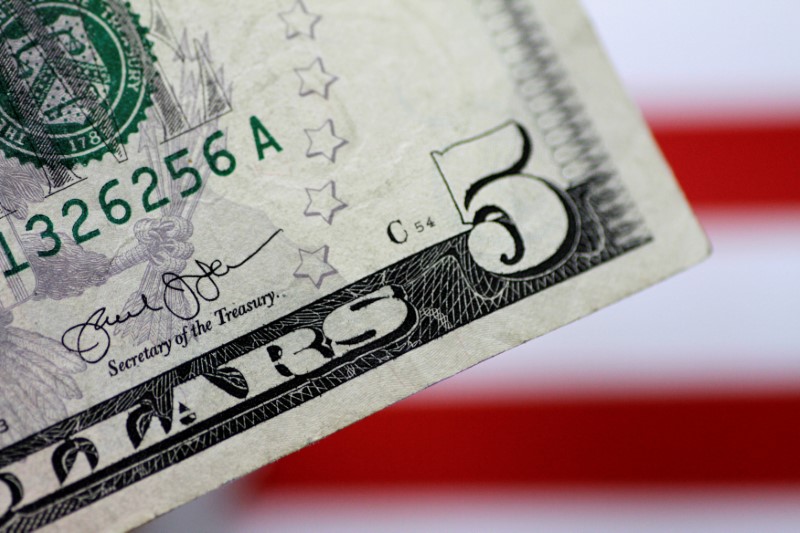Investing.com - The dollar eased from one-and-a-half week highs against a currency basket on Thursday, but remained supported as the minutes from the Federal Reserve’s September meeting indicated that it plans to push ahead with rate hikes in the coming months.
The U.S. dollar index, which measures the greenback’s strength against a basket of six major currencies, dipped to 95.31 by 03:58 AM ET (07:58 AM GMT) after rising 0.63% in the previous session.
The minutes indicated that Fed policymakers were united on the September rate hike and generally anticipated that further gradual rate hikes would be needed to prevent the economy from overheating, with some talking of pushing borrowing costs into restrictive territory.
The minutes made no mention of President Donald Trump’s recent criticism over the pace of rate hikes, but noted that Trump’s tax cuts could make the economy run too hot while and his trade war with China could hit economic growth.
On Tuesday, Trump said the Fed was his “biggest threat” because it was raising rates too quickly.
Global stock markets sold off after U.S. Treasury yields soared to their highest level since 2011 last week amid expectations that the Fed will keep raising interest rates, eroding the value of equities.
The yield on 10-year Treasury notes last stood at 3.209% after rising to one-week highs on Wednesday.
The euro was little changed against the dollar, with EUR/USD at 1.1508.
The pound was steady, with GBP/USD at 1.3111, after touching a one-week low of 1.3076 overnight.
Sterling remained under pressure after the European Union's chief Brexit negotiator Michel Barnier said Wednesday that more time was needed to secure a deal.
USD/JPY last changed hands at 112.60 after rising 0.34% on Wednesday.
Data overnight showed that Japanese exports fell for the first time since 2016 in September, adding to concerns over the impact of the U.S. - China trade war on global growth.
Elsewhere, China’s yuan fell to its lowest level since January 2017 overnight after the U.S. Treasury held back from labelling China a currency manipulator.
